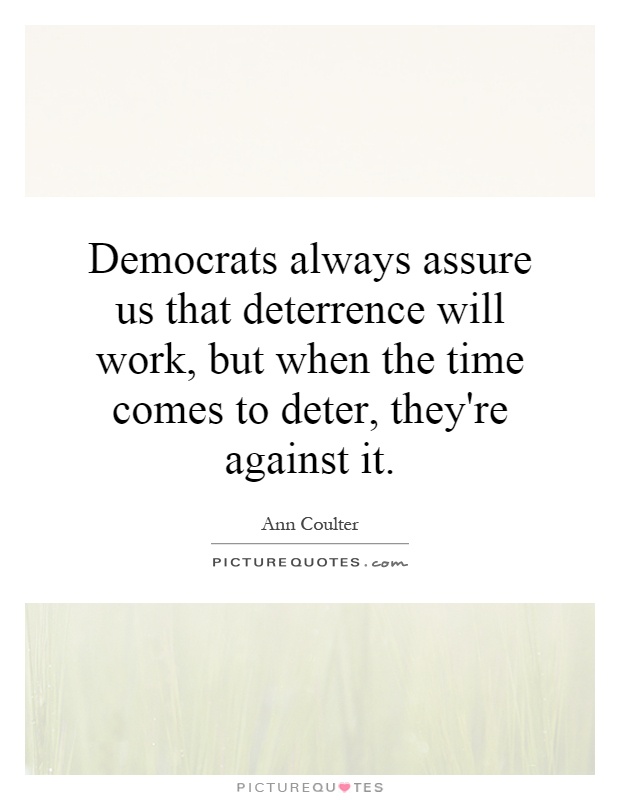Democrats always assure us that deterrence will work, but when the time comes to deter, they're against it

Democrats always assure us that deterrence will work, but when the time comes to deter, they're against it
Ann Coulter, a conservative political commentator known for her controversial statements and staunch support of Republican policies, has often criticized Democrats for what she perceives as a lack of consistency when it comes to issues of deterrence. In her view, Democrats frequently advocate for deterrence as a solution to various problems, but when it comes time to actually implement deterrent measures, they back away or oppose them altogether.Coulter has pointed to a number of examples to support her argument. For instance, she has criticized Democrats for their stance on immigration, arguing that they often talk about the need for deterrence to prevent illegal immigration, but then oppose measures such as building a border wall or increasing border security. Coulter believes that this inconsistency undermines the effectiveness of deterrence as a strategy for addressing the issue of illegal immigration.
Similarly, Coulter has taken issue with the Democratic approach to national security and foreign policy. She has accused Democrats of being quick to talk tough on issues such as terrorism and nuclear proliferation, but then hesitating or outright opposing the use of military force or other deterrent measures to address these threats. Coulter argues that this inconsistency sends mixed signals to America's enemies and undermines the credibility of the United States as a deterrent force on the world stage.
Overall, Coulter's criticism of Democrats on the issue of deterrence reflects her broader belief that the party is weak on matters of national security and immigration. She sees their reluctance to fully commit to deterrent measures as evidence of a lack of resolve and a failure to prioritize the safety and security of the American people. While her views may be controversial and divisive, they highlight the ongoing debate over the role of deterrence in shaping domestic and foreign policy decisions.












 Friendship Quotes
Friendship Quotes Love Quotes
Love Quotes Life Quotes
Life Quotes Funny Quotes
Funny Quotes Motivational Quotes
Motivational Quotes Inspirational Quotes
Inspirational Quotes